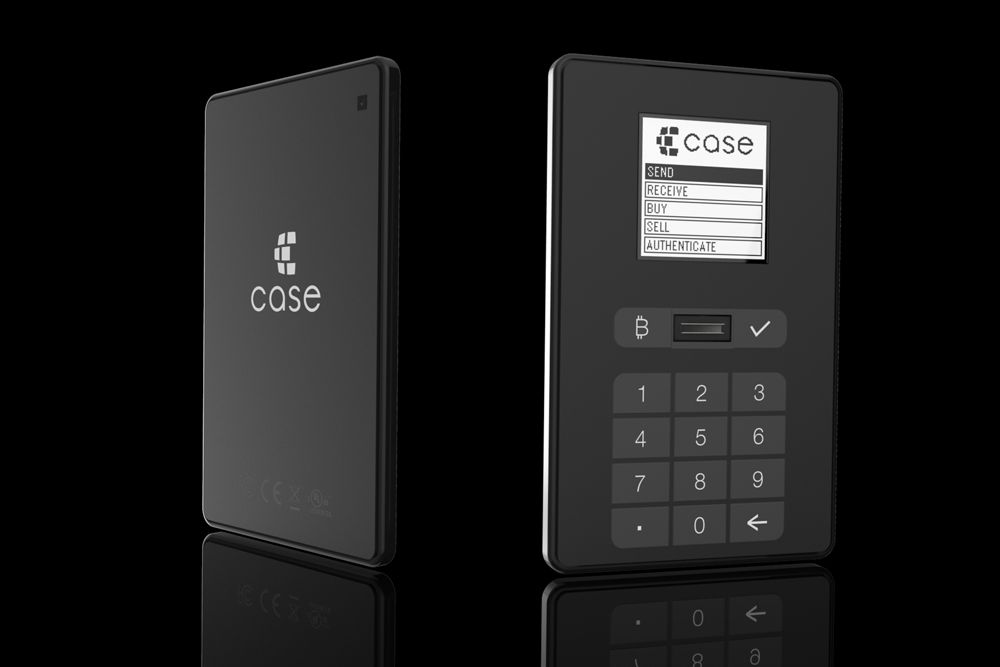CryptoLabs Case Bitcoin Hardware Wallet Melds Biometrics, Multi-Sig, and Ease-of-Use
 CryptoLabs, led by Melanie Shapiro, is working on a new “Case,” a Bitcoin hardware wallet that will set a new standard for security and ease-of-use. The CryptoLabs Case will soon undergo its first manufacturing run, and sales will begin once products are ready to ship. As with any new entrant to the Bitcoin space, skepticism runs amok. CryptoLabs has released their inaugural blog post explaining their system architecture and is currently seeking community feedback.
CryptoLabs, led by Melanie Shapiro, is working on a new “Case,” a Bitcoin hardware wallet that will set a new standard for security and ease-of-use. The CryptoLabs Case will soon undergo its first manufacturing run, and sales will begin once products are ready to ship. As with any new entrant to the Bitcoin space, skepticism runs amok. CryptoLabs has released their inaugural blog post explaining their system architecture and is currently seeking community feedback.
Speaking with CCN.com, CryptoLabs’ founder Melanie Shapiro expanded on her hope that the new Bitcoin hardware wallet would provide a compelling “use case” for Bitcoin:
Existing wallets operate on a spectrum where users are forced to choose between ease-of-use and the security of their bitcoin. We wanted to build something that delivered on both of these fronts, something that would be easier to use than a credit card and more secure than a bank vault. We’re confident that we’ve achieved this, and confident that it will make a more mainstream audience comfortable using bitcoin.
Also read: CryptoLabs Launches Secure Bitcoin Hardware Wallet
How Does the CryptoLabs Case Work?
The CryptoLabs Case features a user experience that is more simple and more secure than the swipe-and-sign methodology used by credit cards, though even that antiquated procedure may soon be abandoned.
The CryptoLabs Case creates three Bitcoin multi-sig private keys, of which two are needed to send a transaction. One key is known as the device key and lives on the device, as a possesive factor (possession of the device). The second key lives on the CryptoLabs server, in heavily encrypted form, and can only be decrypted by the use of an inherence factor (fingerprint). The third key lives offline in storage, likely in a bank vault, and is secured by a knowledge factor (PIN, password). This means that a typical Case Bitcoin transaction would happen as such:
The first key of a Case wallet is embedded in the device itself so it is protected by the possession factor. Without having possession of the device, there is no way to get that key. When you swipe your finger to confirm a transaction, the device signs the transaction with its embedded private key and sends the partially signed transaction along with the fingerprint scan to our servers. The second key is stored server-side and if the fingerprint scan is a match, the server countersigns the transaction with its key and broadcasts it to the Bitcoin network.
CryptoLabs is aware that the Bitcoin community is especially privacy conscious and that the sending of fingerprints to any centralized server might not sit well:
We don’t actually store your fingerprints on our servers. We store a geometric template of the relative locations of unique elements of your fingerprint like bifurcations, lakes, and deltas (more on fingerprints in a later post) and this template is used to validate the fingerprint scan. That template, along with all your other sensitive user data, like the server-side wallet key are encrypted with what we call the User Data Encryption Key (UDEK). Each user has a unique UDEK and that UDEK does not live on our servers, it actually lives on the device. The device grants the server temporary access to your user data in order for the server to validate the fingerprint scan and sign the transaction with the server key.
As another layer of security, the CryptoLabs case does not need to rely on another device for connectivity to the blockchain. In fact, Case should work even in some places without internet access:
The device doesn’t piggy back off your phone for Internet access. It has a dedicated GSM chip and a multi-IMSI embedded SIM card that allows us to hop from carrier to carrier without roaming fees. Bitcoin is a global currency so it seemed silly to have a wallet that didn’t work globally as well. At launch, Case will work in over 60 countries without any monthly fees so you can use it to execute unlimited transactions around the world for the life of the device. One of the goals of our design has been network connectivity without risk, and the result is a perfect blend of convenience and security. Case is different from your cell phone or computer in that all connections are initiated from the device to the server and never the other way around.
In the event that you lose your CryptoLabs Case, a recovery option is still available:
Fear not – that’s where the third key of the multisig wallet comes into play. The third private key and a copy of the UDEK are stored offline (likely in a bank vault but we’re still working out the procedure) and they are only used in the event that you lose your device. The vault key plus the server key create the 2-of-3 signature that’s needed for you to recover your bitcoins if the device is lost or stolen. Since the device key is secured by a possession factor and the server key is secured by an inherence factor, you may have already guessed that the vault key is secured by a knowledge factor.
More information on the CryptoLabs Case can be found at the CryptoLabs blog. What do you think? Comment below!
Images from CryptoLabs and Shutterstock.